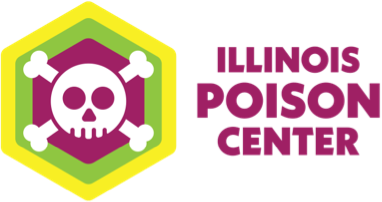Garden and Lawn Safety
Warm weather means pretty flowers, green lawns and more time outdoors. It also means weed killers and potentially poisonous plants. While you enjoy the sunshine, keep in mind possible hazards in your lawn and garden.
Every year, IPC handles thousands of calls about potentially hazardous substances. Most common among lawn and garden exposures are:
- Outdoor plants and mushrooms
- Insecticides and pesticides
- Rodenticides
- Insect bite
- Fertilizers
To protect yourself and loved ones, take the simple precautions below to make your garden and lawn safe.
Tips to Prevent Plant Poisoning
- Identify and label all indoor and outdoor plants with their correct common and botanical names. See our list of spring, summer, fall and winter plants.
- Consult with a local greenhouse, nursery or florist to identify unknown plants.
- Teach your children never to put mushrooms, berries or any part of a plant in their mouths.
- Do not assume a plant is non-toxic because birds or wildlife eat it.
- Keep IPC’s helpline number, 1-800-222-1222, on or near all telephones.
Tips to Prevent Pesticide Poisoning
Poisoning from pesticides most often happens when mixing or diluting the pesticide. It also often occurs when preparing more than needed for one application.
Do not store a prepared pesticide in an unmarked container for future use. Children and adults might mistake the product for something else. Always store pesticides in their original containers, which have important information on ingredients, directions for use and child-resistant cap.
Proper Use
- Carefully read the directions on each pesticide container, since every chemical is different. For example, some products come ready-to-use while others need to be diluted with water before application.
- Do not mix different products together.
- Wear protective clothing when applying pesticides (gloves, glasses, long sleeves and pants)
- Never apply pesticides outdoors on a windy day. Position yourself so the wind will not blow pesticide spray or dust into your face.
- Keep children and pets away during application and until the product dries, or as directed on the label.
- Wash your hands with soap and change your clothes after applying a pesticide.
- Keep IPC’s helpline number, 1-800-222-1222, on or near all telephones.
Proper Storage
- Store pesticides in their original containers and out of reach in a cool, dry place.
- Dispose of the remaining pesticide as directed and rinse out the empty container.
- Wipe down any household or garden tools that may have been exposed to the pesticide.
First Aid Treatment for Potential Plant or Pesticide Poisoning
- If swallowed: Give a small amount of water to drink.
- Exposure to the skin: Wash skin with soap and cool water immediately. Remove any contaminated clothing.
- Exposure to the eyes: Rinse eyes with lukewarm water for 15 minutes. See IPC's tips on First Aid for Eyes.
IPC is here to help. Call our free, confidential helpline at 1-800-222-1222 after you have completed the needed treatment above. Toxicology experts are available to answer your questions 24 hours a day, seven days a week.
